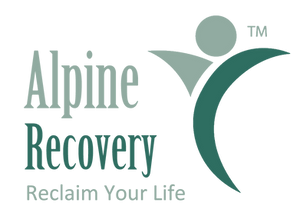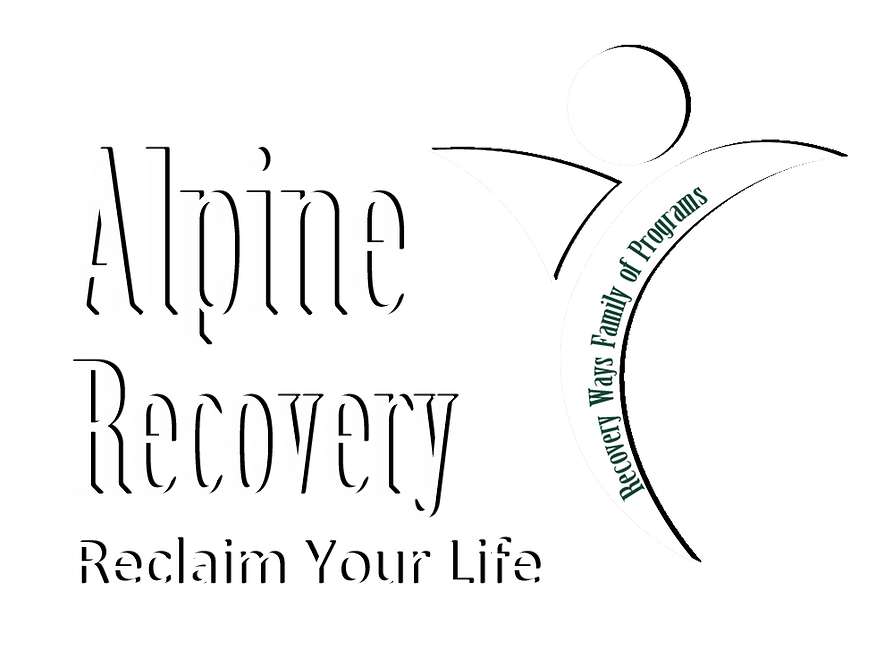Addiction and mental health struggles can feel overwhelming and isolating, but recovery is always possible with the right support and resources. WA rehabs offer a wide variety of treatment programs tailored to meet individual needs, whether you’re seeking help for alcohol addiction, opioid dependency, or co-occurring disorders such as anxiety or depression. These programs are designed to address not just the symptoms but the root causes of addiction and mental health challenges.
At Alpine Recovery, we understand that recovery is deeply personal and that no two journeys are the same. That’s why we’re committed to providing insight into the key services offered at WA rehabs. From evidence-based therapies like cognitive-behavioral therapy (CBT) and medication-assisted treatment (MAT) to holistic approaches like mindfulness and art therapy, there are options for everyone. Many facilities also include family support programs and aftercare planning to ensure sustained progress and healing beyond treatment. Through these comprehensive resources, individuals can find the tools and support they need to build a healthier, more fulfilling future. Recovery isn’t just about overcoming challenges—it’s about rediscovering hope and paving the way for lasting transformation.
Why WA Rehabs Are Unique
Washington state is home to some of the nation’s most comprehensive and innovative rehab facilities, offering individuals a unique opportunity to heal in a supportive and nurturing environment. With a blend of evidence-based practices, holistic therapies, and the stunning natural surroundings of the Pacific Northwest, WA rehabs have become a top choice for those seeking lasting recovery.
Here’s what sets WA rehabs apart:
- Diverse Treatment Options: Facilities offer a variety of programs tailored to meet different levels of care, including outpatient services, inpatient treatment, partial hospitalization, and intensive outpatient programs. This flexibility ensures individuals receive the care that best suits their needs and recovery goals.
- Family-Centered Care: Recognizing that recovery often requires a collective effort, many rehab centers in Washington emphasize family involvement. Therapy sessions and workshops are designed to educate and empower families, helping them provide meaningful support during and after treatment.
- Specialized Addiction Treatment: Washington rehabs are equipped with expertise to address substance-specific challenges, whether it’s alcohol, opioids, stimulants, or prescription drugs. Many centers also offer dual-diagnosis care, treating co-occurring mental health conditions like anxiety or depression alongside addiction.
- Integration of Holistic Practices: Beyond traditional therapies, many WA facilities incorporate holistic approaches such as yoga, meditation, art therapy, adventure therapy, or equine therapy. These methods aim to address the mind, body, and spirit, promoting overall well-being and resilience during recovery.
In addition to these unique features, the natural beauty of Washington’s forests, mountains, and coastlines creates a calming backdrop for healing. Many centers use their location to incorporate outdoor activities like hiking or kayaking, which can foster personal growth and connection with nature. Whether you’re seeking a structured treatment program or a more holistic approach, Washington’s rehab facilities provide a supportive and transformative space for recovery.
Core Treatment Programs Offered at WA Rehabs
1. Family Support: Rebuilding Trust and Connection
Addiction doesn’t just impact the individual—it ripples through families, creating strain and disconnect. Family support programs at WA rehabs are designed to address these challenges, fostering understanding and healing for everyone involved.
Key Components:
- Family Therapy:
-
- Facilitated sessions where loved ones can address misunderstandings, rebuild trust, and improve communication.
- A safe space to voice concerns and find resolutions.
- Education Workshops:
-
- Teaching families about addiction as a disease and its effects on behavior and decision-making.
- Guidance on how to support recovery without enabling destructive patterns.
Why It’s Important:
Family dynamics often play a crucial role in addiction, influencing both the development of the condition and the recovery process. Addiction doesn’t just affect the individual—it impacts the entire family unit, straining relationships and creating patterns that can be difficult to break. Strengthening these relationships not only provides vital support for the individual in recovery but also fosters a healthier, more stable environment for everyone involved.
At Alpine Recovery, we prioritize family involvement because we understand its significance in the healing journey. Whether through family therapy sessions, education programs, or open lines of communication, we aim to rebuild trust and create a foundation for lasting change. Recovery is a team effort, and families are often the cornerstone of that transformation.
2. Continuing Care: Sustaining Progress
Recovery doesn’t end when treatment does—it’s an ongoing journey that requires continued support. WA rehabs emphasize the importance of aftercare through structured programs that provide guidance long after the initial treatment phase.
Common Services:
- Alumni Groups:
-
- A network of peers who’ve completed treatment and can offer encouragement and accountability.
- Regular Therapy Sessions:
-
- Continued access to individual or group therapy to address challenges and celebrate milestones.
- Check-Ins with Case Managers:
-
- Personalized support to navigate post-rehab life, whether it’s finding employment, housing, or additional resources.
Why It Matters:
Studies show that individuals who engage in continuing care are significantly more likely to maintain long-term sobriety, as ongoing support plays a key role in preventing relapse. At Alpine Recovery, our aftercare programs are thoughtfully crafted to provide clients with the tools and resources they need to transition smoothly back into everyday life. From counseling sessions and peer support groups to personalized plans, we focus on keeping clients grounded, motivated, and aligned with their recovery goals, ensuring they have a strong foundation for lasting success.
3. Moral Reconation Therapy (MRT): Building Better Choices
Moral Reconation Therapy is an evidence-based approach aimed at helping individuals develop stronger moral reasoning and decision-making skills. It’s particularly effective for those who’ve struggled with criminal behavior or chronic relapse.
How MRT Works:
- Focus on Accountability: Encourages clients to take responsibility for their actions and understand their consequences.
- Structured Steps: Participants work through exercises designed to promote self-reflection and personal growth.
- Lasting Change: By addressing the thought patterns behind destructive behaviors, MRT helps clients build a foundation for long-term recovery.
This program is available at many WA rehabs, including Alpine Recovery, where it is offered as part of a comprehensive and personalized approach to treatment.
4. Relapse Prevention: Staying Strong in Recovery
Relapse is a common concern for individuals in recovery, but WA rehabs provide robust relapse prevention programs to equip clients with the tools they need to stay on track.
Key Strategies:
- Trigger Identification:
-
- Helping clients recognize and avoid situations, people, or emotions that could lead to relapse.
- Coping Mechanisms:
-
- Teaching practical skills like mindfulness, stress management, and healthy communication.
- Support Networks:
-
- Encouraging participation in groups like Alcoholics Anonymous (AA) or Narcotics Anonymous (NA).
Why It’s Critical:
Relapse isn’t a failure; it’s an opportunity to learn and a challenge to overcome. At Alpine Recovery, we understand that recovery is a journey, not a straight line, and setbacks can be part of the process. That’s why we emphasize the importance of preparation and proactive planning to help individuals build resilience and navigate life’s inevitable ups and downs. With the right support and tools, every step forward—no matter how small—brings you closer to lasting recovery.
5. Positive Choices: Shaping a Healthier Lifestyle
Making positive choices is a central theme in recovery. At WA rehabs, clients are encouraged to embrace new habits, perspectives, and relationships that support their well-being.
Program Goals:
- Fostering Self-Esteem:
-
- Helping clients see their value and potential beyond addiction.
- Encouraging Healthy Relationships:
-
- Teaching boundaries and promoting connections that support sobriety.
- Discovering New Passions:
-
- Encouraging clients to explore hobbies and interests that bring joy and purpose to their lives.
By focusing on positivity and personal growth, clients are empowered to overcome challenges, build resilience, and create a life they’re proud of. This approach encourages self-reflection, fosters confidence, and helps individuals unlock their full potential in both personal and professional areas of their lives.

Levels of Care at WA Rehabs
6. Intensive Outpatient Programs (IOPs): Balancing Flexibility with Structure
Intensive Outpatient Programs (IOPs) are a great option for individuals who need a structured recovery program but also want the flexibility to maintain daily responsibilities.
What IOPs Include:
- Therapy Sessions:
-
- Regular group and individual therapy, focusing on building coping skills and emotional resilience.
- Educational Workshops:
-
- Covering topics like relapse prevention, stress management, and the science of addiction.
- Flexible Schedules:
-
- Daytime or evening sessions to accommodate work, school, or family obligations.
Intensive Outpatient Programs (IOPs) provide a strong support system for individuals in recovery, offering structured therapy and guidance while allowing clients to continue living at home. This setup enables them to practice recovery skills in real-world settings, fostering a balance between professional support and personal responsibility as they navigate their daily lives.
7. Partial Hospitalization Programs (PHPs): Intensive Treatment with a Transition Plan
Partial Hospitalization Programs (PHPs) offer a higher level of care than IOPs but less restrictive than inpatient programs.
Features of PHPs:
- Daily Therapy Sessions:
-
- Clients participate in therapy for several hours each day, then return home or to a sober living facility in the evening.
- Medical Monitoring:
-
- Regular check-ups to address withdrawal symptoms or co-occurring conditions.
- Holistic Options:
-
- Programs may include activities like yoga, meditation, or nutrition counseling.
Partial Hospitalization Programs (PHPs) are an excellent option for individuals who need a higher level of care and structured support as they transition from inpatient treatment to outpatient care. These programs provide a safe and supportive environment where participants can access therapy, skill-building sessions, and medical supervision while still maintaining some independence.
Addiction-Specific Care
WA rehabs specialize in treating a wide variety of substance use disorders, offering tailored programs to meet individual needs. These facilities provide professional care and support to help individuals overcome addiction and regain control of their lives. Here’s a closer look at some of the most common addiction programs they offer, designed to address specific substances and underlying challenges:
8. Alcohol Addiction Treatment
Alcohol addiction is one of the most prevalent substance use disorders, and WA rehabs offer targeted treatment plans that include:
- Detox Support: Managing withdrawal symptoms safely.
- Therapy Sessions: Addressing the emotional and psychological aspects of alcohol dependence.
9. Marijuana Addiction Treatment
While marijuana is often perceived as harmless, dependency can still develop. Programs focus on:
- Identifying underlying causes of marijuana use.
- Teaching coping strategies to avoid reliance on the substance.
10. Fentanyl Addiction Treatment
Fentanyl addiction requires specialized care due to the substance’s potency. WA rehabs use:
- Medication-Assisted Treatment (MAT): To manage cravings and withdrawal.
- Intensive Therapy: Helping clients process trauma and build resilience.
11. Methamphetamine Addiction Treatment
Meth addiction can have severe physical and mental health consequences. Treatment typically includes:
- Behavioral therapies like CBT to address compulsive behaviors.
- Nutritional and medical support to promote physical recovery.
12. Cocaine Addiction Treatment
Cocaine addiction programs focus on rebuilding life skills and avoiding high-risk situations, using:
- Individual and group therapy.
- Relapse prevention strategies.
13. Opioid Addiction Treatment
Opioids are among the most challenging substances to recover from, but WA rehabs excel in providing:
- MAT to ease the detox process.
- Counseling to address the emotional pain driving addiction.
Choosing the Right WA Rehab
Choosing the right rehab program is a deeply personal decision, but having a clear understanding of the options available can make it less overwhelming. Whether you’re looking for family support programs, addiction-specific care tailored to your needs, or the flexibility of an outpatient program, WA rehabs provide a wide range of resources designed to help individuals take the first step toward recovery. These programs focus on creating a supportive environment to address both the physical and emotional aspects of addiction.
At Alpine Recovery, we believe that no one should face this journey alone. Our dedicated team is here to guide you through every step of the recovery process, offering personalized care and encouragement along the way. Recovery is not just possible—it’s within your reach. Let us help you take that first step toward a healthier, brighter future. Visit our website https://alpinerecovery.com/ or call us at (360) 658-1388.



